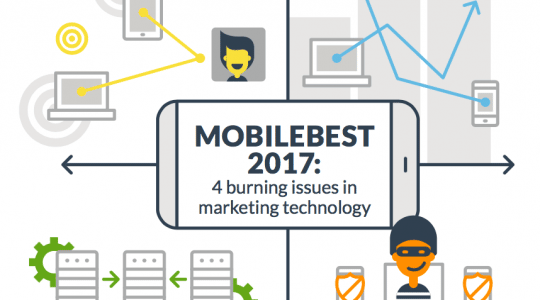
We recently hosted a webinar, “Game On: Pro Tips and Winning Strategies for Conquering Gaming App Marketing,” and heard some fascinating stories from Christian Calderon, Chief Revenue Officer at Ketchapp, and Greg Dale, Product Marketing Manager at Chartboost.
We had great participation on the webinar, and I wanted to share three top questions from the Q&A portion of the webinar, because the answers can help make you more successful.
Q: What is your approach to optimizing app store assets?
A: I reverse engineer the experience for the user. The assets that I use even in performance marketing will affect this, so I want to look at the icon I’m using and all the assets I have in my store and my UA assets and make sure it all tells a story, so that from the time that user sees the ad and goes to the app store, it feels like it all makes sense. It is that last asset they hit that that is the most important, because when they are in the app store, they are either going to install your app or they aren’t, so you want them to feel like they are going to the game they wanted to go to. And so it all has to blend. That’s my overall approach to optimizing assets.
When you are testing those, you want to be testing each variant. I am trying to understand what I’m changing and measure all my conversion performances and I try to do this across any single thing I can test. I want to have at least one good performance gain from each of those tests and slowly that’s how you optimize performance. You usually don’t see gains right away but it isn’t uncommon to see a 10 or 15 percent gain in conversion after running a dozen or so tests.
– Christian Calderon
Q: What events should I be measuring to determine the lifetime value of my users?
A:I think revenue is probably the most compelling — you need revenue and user data to calculate that. There are some advanced methods that people are doing but they are measuring many different variables to try and forecast in an advanced non-linear way what is lifetime value, but I don’t have a giant data science team so I just use revenue and user data.
– Christian Calderon
I would agree on that. Other things that are useful are metrics (if you have them) that imply that, like — complete, level 1,2 3 , people who signed up for an account versus installed the game and the way you use them is as a quicker, faster proxy for revenue. Revenue can takes weeks to show up sometimes, but you dont want to ahve to wait that lnog if you acn avoid it. Quckening the cycles of optimizations and decison making via anything that can get you to that revenue is very important.
– Greg Dale
Q: What’s the top metric that gaming companies should pay attention to the most?
A: For the free-to-play user acquisition oriented side, having total collection of not just the nitty gritty RPU linked to specific campaigns but a holistic approach to measuring LTV and how the frequency of the LTV the frequency of when that — as we all know the whale users often drive a lot of that return and having a really good understanding of when and how likely those users are to show up – and not making decisions too early. It is not a metric that is new to anyone but in practice having a one year or six month view of LTV translate down to the acquisition level is something I think everyone can benefit from.
– Greg Dale
Don’t miss out!
You can view the recording on-demand, so don’t miss this excellent webinar loaded with more great info. You can get it right here.
We’re also happy to give you a personalized demo to show you how you can be a more effective marketer, and use TUNE to help measure, manage, and improve campaign performance, engage the right audiences to boost acquisition, optimize performance to make your app more discoverable, and grow through business intelligence that drives actionable insights.
We’ll tell you more about why TUNE provides the most-used marketing technology by the 100 top grossing apps, why nine out of 10 worldwide app developers have TUNE’s technology integrated into their app, and how marketers on average see a 69% increase in installs and more than double their revenue per install within six months of using TUNE.
According to PocketGamer’s new list of “Top 50 Mobile Game Developers,” half of the top game developers work with TUNE to master mobile marketing for their uber-successful games, including six of the top 10. You can be one of them.
Like this article? Sign up for our blog digest emails.
Author
Becky is the Senior Content Marketing Manager at TUNE. Before TUNE, she handled content strategy and marketing communications at several tech startups in the Bay Area. Becky received her bachelor's degree in English from Wake Forest University. After a decade in San Francisco and Seattle, she has returned home to Charleston, SC, where you can find her strolling through Hampton Park with her pup and enjoying the simple things between adventures with friends and family.




Leave a Reply
You must be logged in to post a comment.